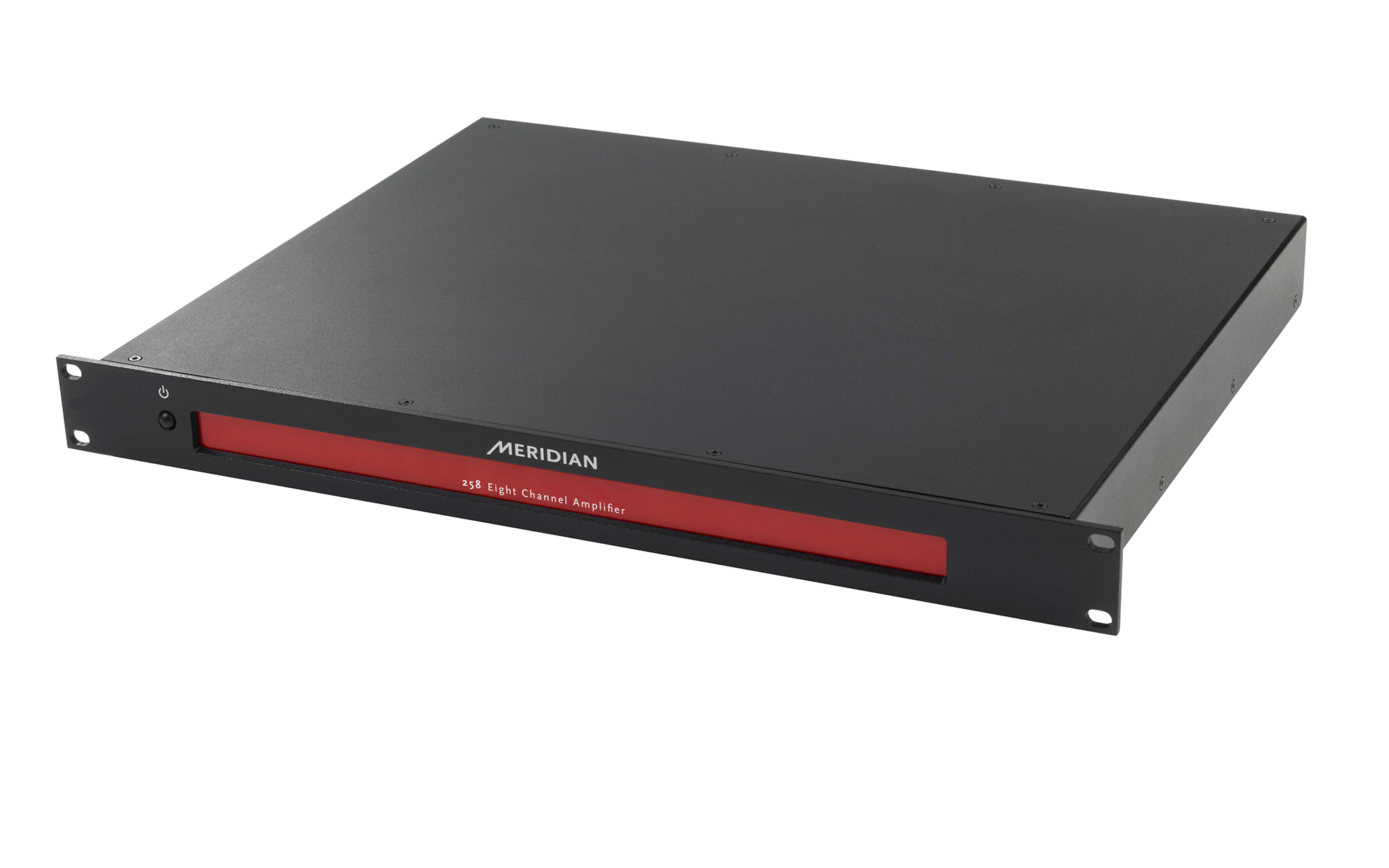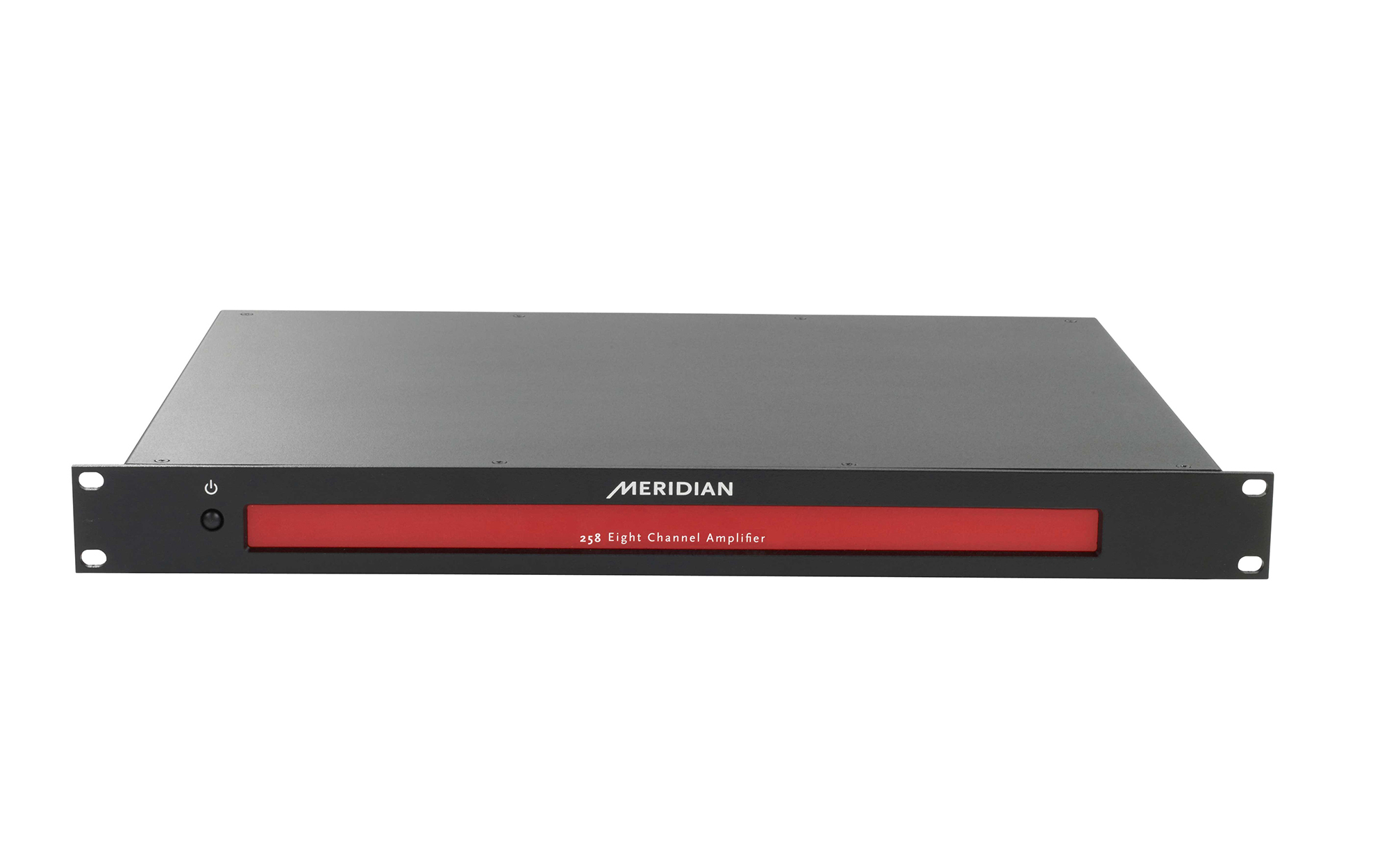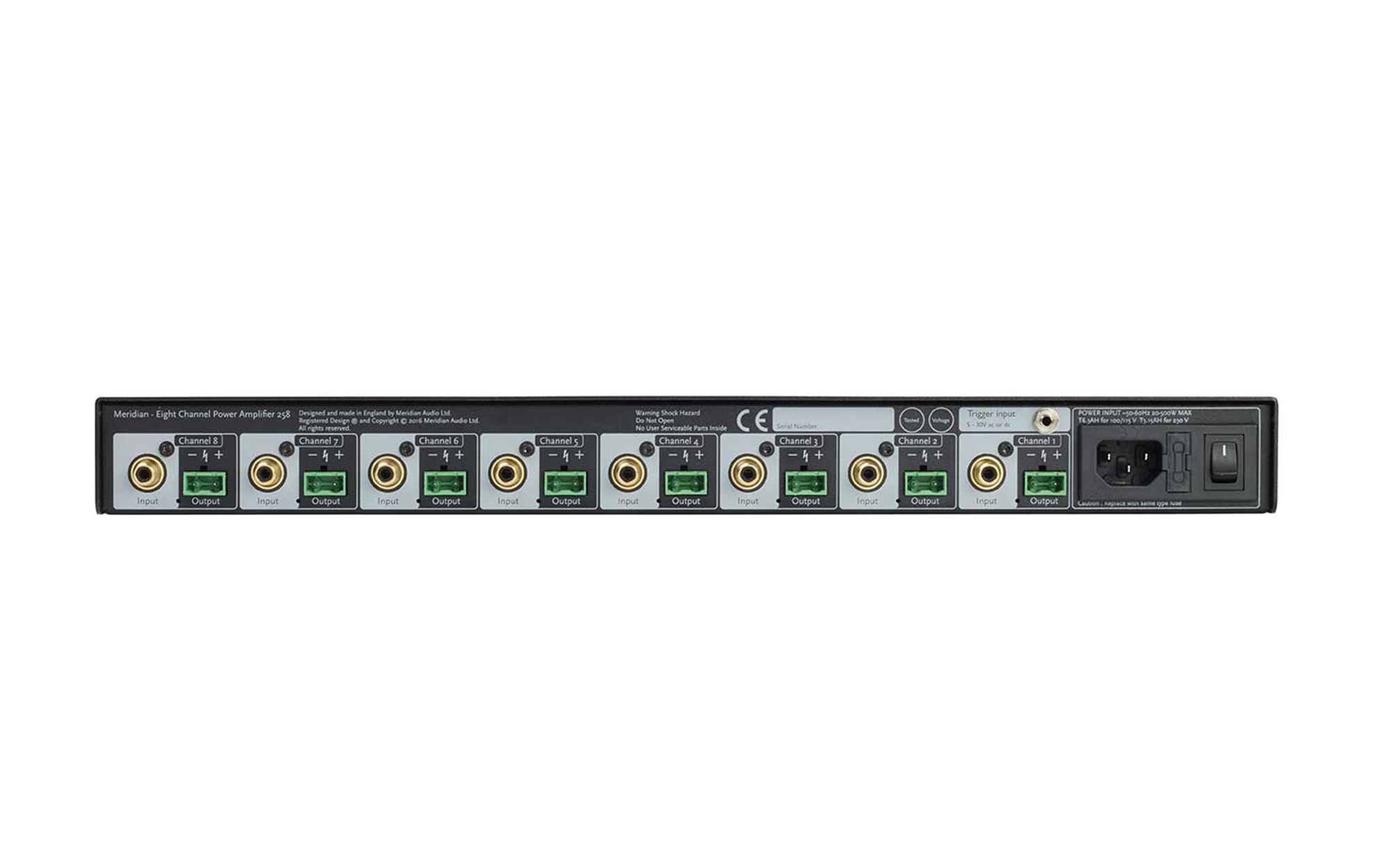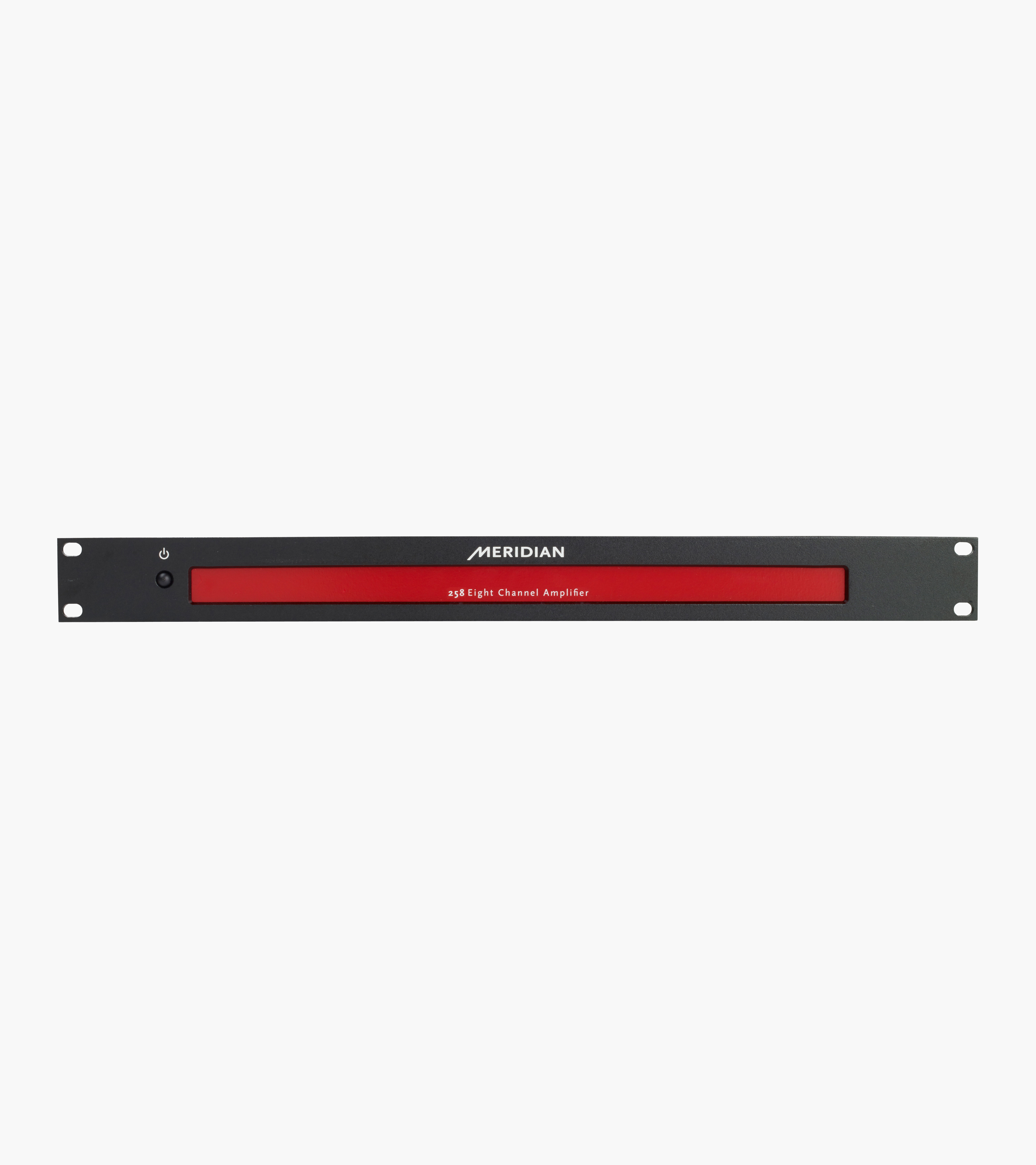
Multi-Channel
Meridian customers - create an account so you can register your product(s) for your extended warranty.
Dealers, integrators, and installers - create an account to request access to Dealer Resources and/or apply to become a Meridian dealer.

Multi-Channel
The Meridian 258 is our dedicated rack-mount Eight Channel Power Amplifier. This powerful, high performance, cool-running Class D amplifier is suitable for a wide range of applications. At only 1U high, the compact 258 is a category changing amplifier; bringing Meridian high resolution sound quality to every zone it powers.
Featuring a highly efficient, cool and fan-less construction, the Meridian 258 provides a truly ‘fit and forget’ solution when driving multiple zones. An audiophile approach has been taken to the 258’s component selection, resulting in a level of performance typically associated with power amplifiers offered at a significantly higher price.
Find a distributorMulti-Channel
258
Featuring a highly efficient, cool and fan-less construction, the Meridian 258 provides a truly ‘fit and forget’ solution when driving multiple zones.
Delivers >100 watts per channel into 4 ohms, or >70 watts per channel into 8 ohms, regardless of how many channels are driven simultaneously.
Short signal path construction is combined with extremely high isolation between the 258’s eight channels.
A linear power supply using a massive toroidal transformer delivers both unbeatable audio performance and reliability.
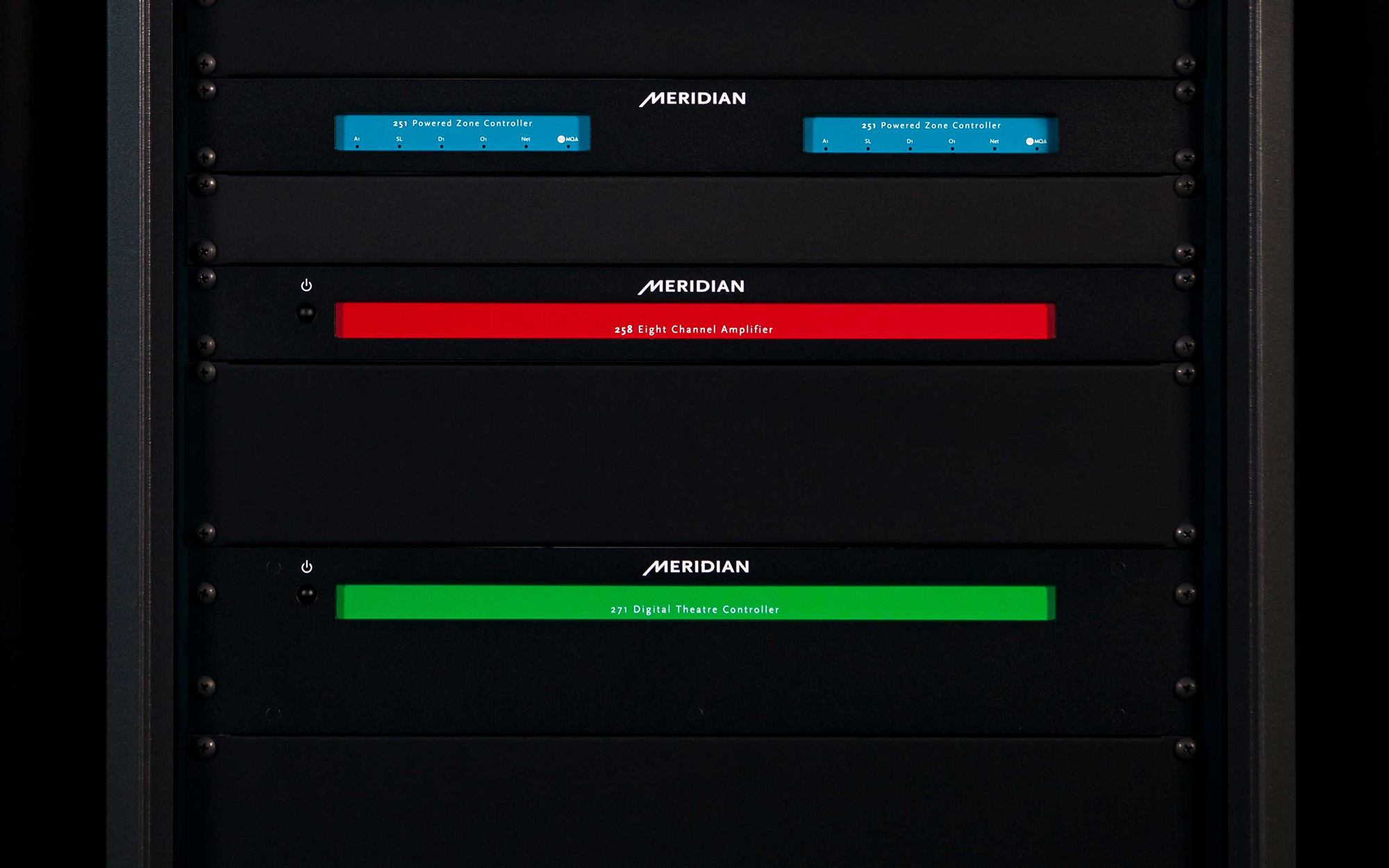
Measuring only 1U high, the 258 is a compact unit that requires minimal space in-rack.
Designed to run within temperature limits with no need for internal cooling fans.
Highly-efficient Class-D amplifiers with post-filter feedback are extremely well isolated from each other.
The Meridian 200 Series is a collection of high-performance audio zone controllers, theatre controllers and amplifiers, all designed with the Customer Integrator in mind.
Each product is designed to work in isolation or as part of a larger multi-zone audio-visual installation and a compact footprint means they fit perfectly within the rack. With a wide range of audio inputs and outputs, flexible installation options and many of Meridian’s proprietary technologies on board, 200 Series products deliver outstanding performance in many applications.
Here you will find a quick overview of the product highlights and features.
Here you will find a summary of the complete range of Meridian products in one document.
AUDIO INPUTS
Eight RCA inputs
AUDIO OUTPUTS
70W into 8 Ohms per channel
100W into 4 Ohms per channel
Phoenix Connectors supplied for ease of installation 24-12 AWG cable
CONTROL
REAR PANEL: Trigger input [3.5mm 5-30 VDC]
FRONT PANEL: On/Off Switch
DISPLAY
LEDs to indicate ‘Standby’ [Blue], ‘On’ [White], ‘Overload’ [Red]
DIMENSIONS
HEIGHT: 44mm [1.73in]
WIDTH: 480mm [18.9in]
DEPTH: 360mm [14.17in]
WEIGHT: 5.5Kg [12.13lbs]
CONSTRUCTION
All aluminium construction
Optional standalone feet pads supplied
POWER
Advanced linear power supply: 100V ac 50/60 Hz | 110-120V ac 50/60Hz | 220-240V ac 50/60Hz
